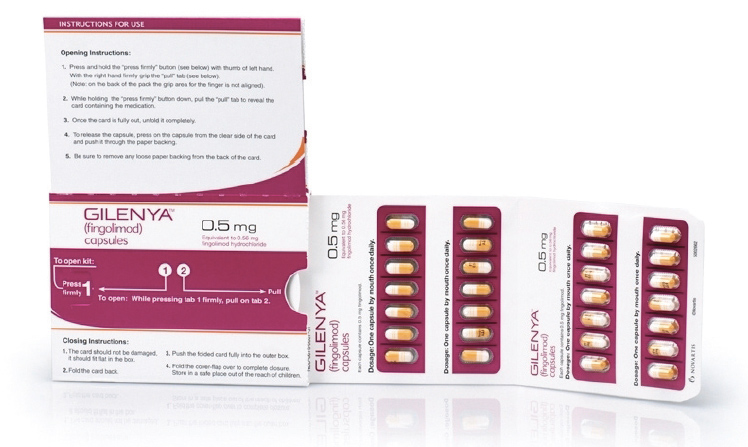Novartis secures initial block on Gilenya generics in US

Novartis has won a temporary reprieve from generic competition to its big-selling oral multiple sclerosis therapy Gilenya in the US, which accounts for around half its sales.
The Swiss pharma group has been granted a court order preventing generics of Gilenya (fingolimod) from several companies – including Dr Reddy’s Labs, Mylan, Torrent, Aurobindo and others – from launching until ongoing patent litigation is resolved. There’s no court date set yet for the patent challenge.
Novartis has been predicting that no Gilenya generics would launch this year, but has admitted some rivals may opt to do so, even though they could risk damages if it subsequently defended its patents successfully in the courts.
A US federal judge has now ruled that the generic drugmakers mustn’t launch yet because the damage it would cause to Novartis is so much bigger than the impact of a delay on the would-be rivals, says Reuters, citing court documents.
Judge Leonard P. Stark wrote in an opinion that the defendants will lose the opportunity to earn $50 million collectively, which is far outweighed by the “irreparable” loss of market share for Novartis, given that the US made up almost $1.8 billion of Gilenya’s $3.34 billion in total sales last year.
Gilenya was first approved in 2010 for relapsing-remitting multiple sclerosis (RRMS) and has been a big earner for Novartis, although it is already facing considerable competition from newer drugs such as Roche’s Ocrevus (ocrelizumab) and Merck KGaA’s Mavenclad (cladribine).
The arrival of generics would have a much bigger impact on the drug of course, and while admitting its main patent protection on Gilenya expires this year, Novartis has been arguing that a new formulation patent should protect the drug from copycat competition until 2027.
Buying that additional time would give the Swiss company more time to build market share for Gilenya follow-up Mayzent (siponimod), its new oral therapy for RRMS which was approved by the FDA in March.
Analysts have suggested that in time Mayzent could rival Gilenya with peak sales of $3 billion or so, thanks in part to its activity in secondary progression MS, although there are plenty of factors that could disrupt that assessment.
The big one is the potential for generic competition to Biogen’s oral RRMS therapy Tecfidera (dimethyl fumarate), which outsold Gilenya with revenues of $4 billion last year, and is also facing a patent challenge in the US.
Meanwhile, more branded competition is looming from Celgene – which has just got its ozanimod programme back on track after a series of delays – as well as Biogen’s Tecfidera follow-up diroximel fumarate. Both of those drugs could be on the market within the next few months.













